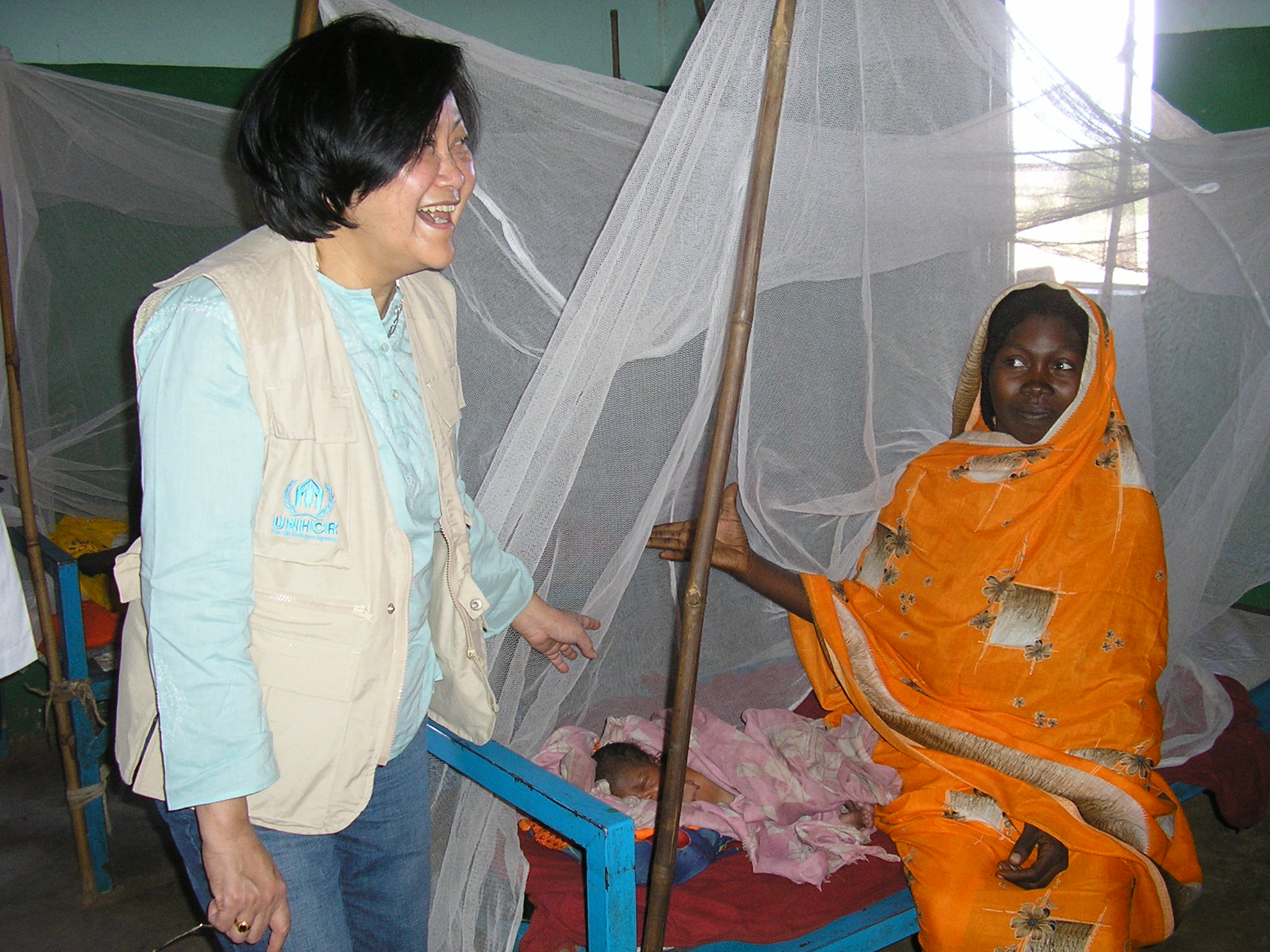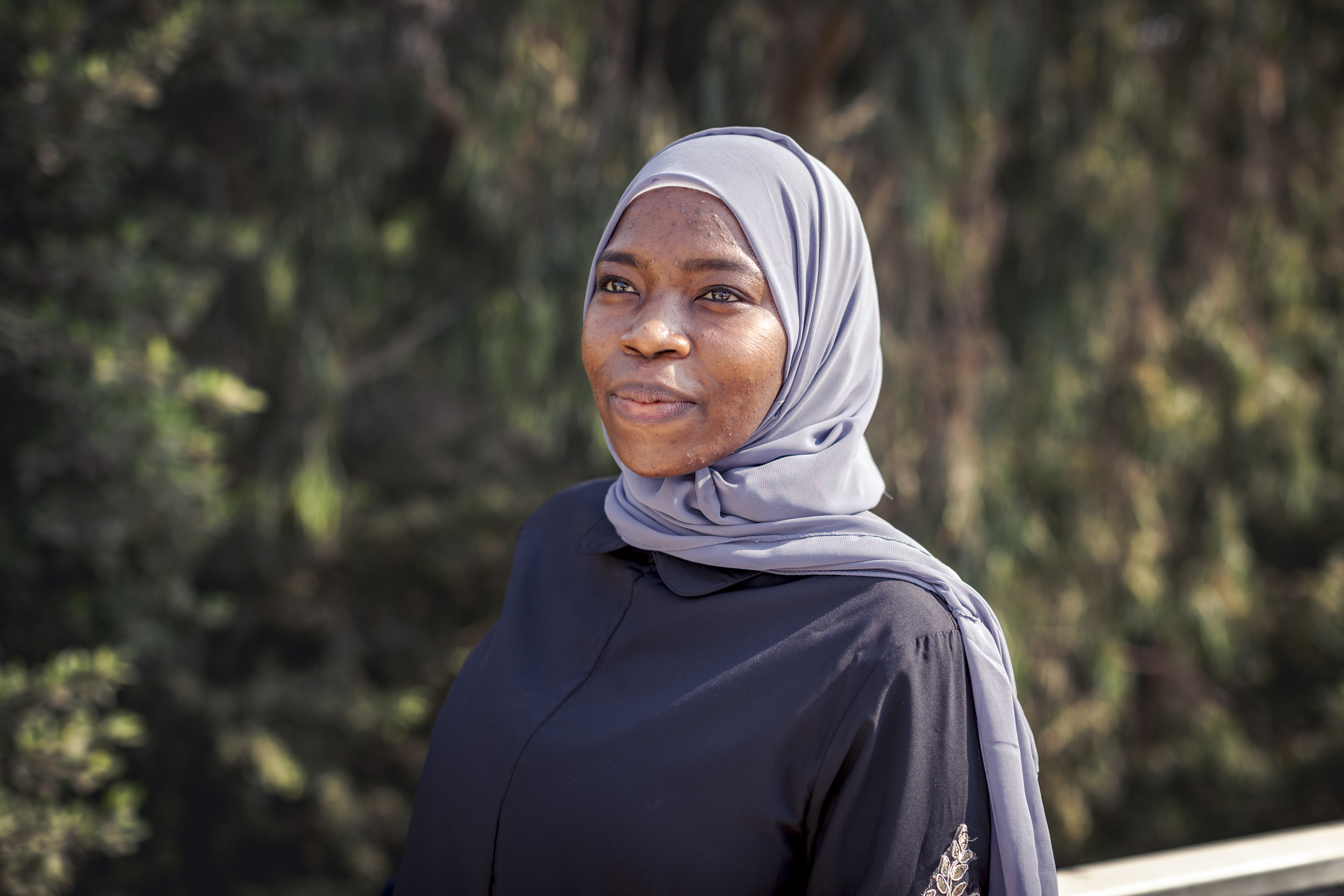Refugees from Darfur call for improved educational facilities in eastern Chad camps
Refugees from Darfur call for improved educational facilities in eastern Chad camps

GOZ BEIDA, Chad, January 29 (UNHCR) - Sudanese refugees in eastern Chad told a senior UNHCR official this week that they need better educational facilities for their children, while Chadians displaced within their own country said they were worried about food shortages in the coming year.
The call came on Thursday when Assistant High Commissioner for Operations Janet Lim visited Djabal, one of 12 UNHCR-run camps in eastern Chad hosting some 250,000 refugees from Sudan's Darfur region. There are also some 166,000 internally displaced Chadian nationals in the east.
Refugee leaders in the camp, located near the town of Goz Beida, said facilities in Djabal's three primary schools urgently needed to be improved. They said that, due to a lack of funding, there were hardly any chairs and desks and most children had to sit on the floor. They also did not have enough stationery, textbooks and other materials to study with.
With their prospects of going back home soon looking remote, they also called for the establishment of secondary schools in camps across the east. There are currently only two secondary schools in the 12 camps.
Lim took their requests as a positive development. "Whenever refugees start to ask for better education, it means that all their other basic needs are well taken care of," she noted. UNHCR believes the improvement of educational facilities and opportunities in refugee camps can help prevent children and teenagers from being recruited by armed groups.
The Assistant High Commissioner also met a group of Chadians who had been displaced by fighting in 2006-2007 between government troops and rebel forces in the east and found shelter close to Djabal in a place called Gouroukun. They said they were worried about food shortages this year because of the poor harvest of crops such as millet and sorghum in 2009. They said continuing insecurity in the Chad-Sudan border region prevented them from returning home.
Lim, meanwhile, said the host communities in the east should not be forgotten. "We must make sure that the local community can benefit more from the assistance that is being provided to the refugees and, if necessary, we should be ready to encourage our development-oriented partners to engage in programmes covering the needs of host communities."
The Assistant High Commissioner, who is in Chad to review UNHCR's operations there, also visited Touloum refugee camp, where staff are registering some 26,000 refugees. The refugee agency completed verification exercises in 10 of the refugee camps last year and the information is being used to update databases and identify the most vulnerable refugees.
Lim praised UNHCR staff and partner organizations for their vital work in the country. "The Chad operation has the reputation of being among the most difficult and challenging ones worldwide. You are in the deep field and you are the point of delivery. I'm really impressed by what has been achieved so far," she said.
Lim is scheduled to travel to southern Chad on Saturday, where she will visit camps providing shelter for almost 70,000 refugees from the Central African Republic. She began her four-day visit on Wednesday in the Chad capital, N'Djamena, where she discussed UNHCR's plans to shift its operational footing in the east from an emergency mode to providing care and maintenance for Sudanese refugees who have arrived in Chad since 2003.
By Annette Rehrl in Goz Beida, Chad








